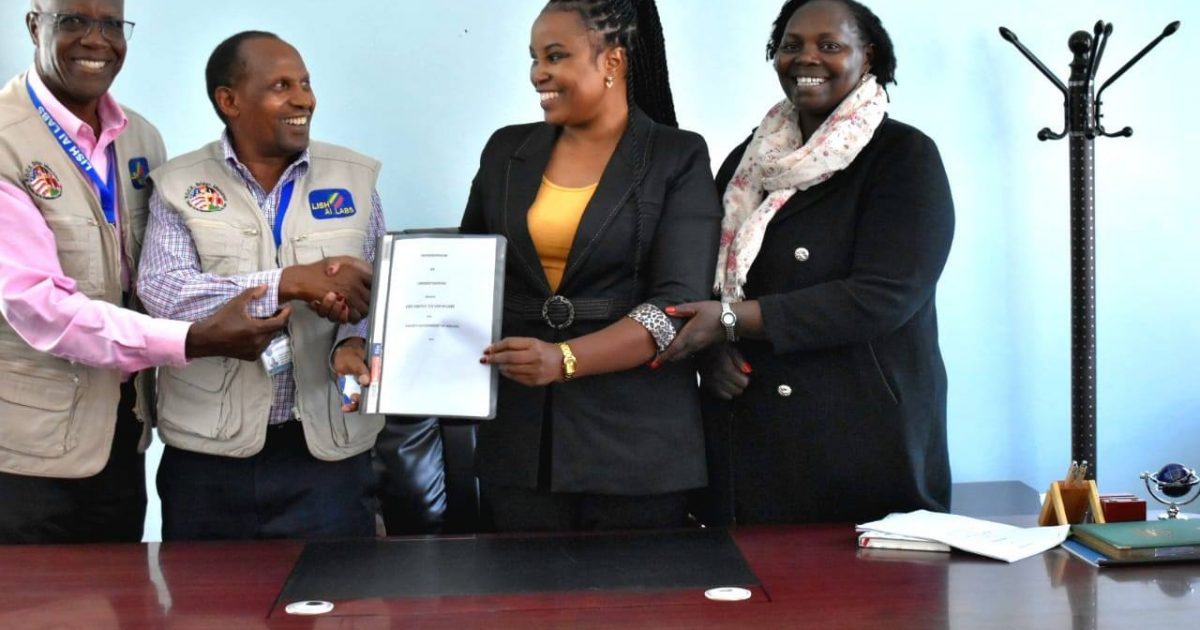Nakuru County Government has inked a deal with data annotation and model validation solutions company Lish AI Labs to train at least 850 persons from special interest groups to enhance their employability and advance inclusivity within the technology sector.
County Executive Committee Member (CECM) for Education, ICT, e-Government, and Public Communication, Ms Zipporah Wambui, said the training programme designed for persons living with disabilities, women, and youth will focus on providing accessible technology training, soft skills development, and creating pathways for digital inclusion and economic participation.
The County Official further said that the participants, drawn from all 11 sub-counties, will also receive soft skills training on topics such as communication, teamwork, creative thinking and problem-solving.
The key areas of training, she added, will include computer literacy, cybersecurity, Artificial Intelligence (AI), youth skills development, digital marketing, entrepreneurship and facilitating access to online job opportunities towards empowering the persons to improve their access to information and opportunities provided for in the digital economy.
Ms. Wambui, who spoke after signing a Memorandum of Understanding with Lish AI Labs Limited, disclosed that the initiative will also include comprehensive career mentorship and coaching designed to equip participants with the skills needed to excel in the ICT sector.
She explained that the training will be conducted through digital hubs across the county in areas including Shabab digital centre, Menengai East, Rongai, Subukia, Kuresoi South, Njoro and Molo ICT hubs.
She pointed out that the training program will place an emphasis on empowering women in rural parts of the county with essential skills, enabling them to actively participate in Kenya’s rapidly growing digital economy adding that by equipping youth, women and people with disabilities with digital skills, the initiative aims to increase their employability and participation in the digital economy.
The initiative, Ms Wambui explained, supports the Kenyan government’s ongoing efforts to expand digital infrastructure and improve digital literacy across the country by equipping citizens with the skills needed to utilize the digital space.
“We will ensure that persons from special groups receive market-oriented digital skills that can enable them to transition to jobs in the digital economy,” she said.
The CECM explained that having digital equity meant that everyone had equal access to information, education, job opportunities, healthcare services, and civic engagement platforms.
This, she added, fosters inclusivity, promotes social and economic justice and helps individuals thrive in a technology-driven society.
“Without digital equity, special interest groups may be left behind, worsening existing disparities and hindering social progress,” Wambui said.
Ms Wambui further indicated that digital imbalance restricts people’s ability to obtain information, education, employment opportunities, government services, healthcare knowledge, social and political participation, and other essential services. This she noted could limit social mobility, worsen inequality, and widen the gap between digitally empowered and marginalized groups.
Lish Al Labs Director Dan Njiriri said the initiative was part of the company’s mission to expand opportunities for the underserved through the digital economy in Kenya and helping the community lift itself out of poverty and build sustainable careers in the tech industry.
He explained that the digital economy had emerged as a transformative force globally, and Kenya was well positioned to contribute to creating a more inclusive digital ecosystem where everyone could have a chance to make a meaningful impact.
The Director said the heart of their mission was in harnessing the potential of marginalized communities and providing them with the tools and skills they needed to thrive in the rapidly evolving digital landscape.
“By focusing on underserved youth and women in Nakuru we aim to bridge the digital divide and pave the way for sustainable economic growth,” added Njiriri.
He went on to say that through the initiative, they were not only creating employment opportunities for Kenyan youths but also ensuring that Kenya played a significant role in shaping the future of AI development, creating opportunities, and ensuring Kenya was well-positioned to contribute to creating a more inclusive AI ecosystem where everyone could make a meaningful impact.
By Esther Mwangi




